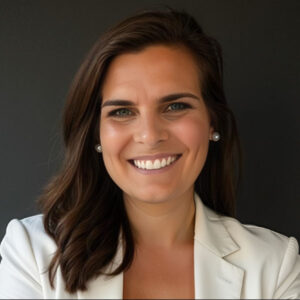Finding Value Investments in Private Equity

Finding Value Investments in Private Equity
Private investors and venture capitalists are always looking for the next great company, idea or product to put their money into, in order to reap great financial rewards down the road. However, how do private investors know where to find the true value investments that exist?
Experienced Investor
Jonathan Coslet is the Chief Investment Officer at Texas Pacific Group, also known as TPG capital, and he has been with the firm since its inception in 1993. He also serves on TPG’s Executive Committee. Before joining TPG, Jonathan started his career at Drexel Burnham Lambert and later moved to Donaldson, Lufkin & Jenrette. His formal education includes earning a BS in economics and finance from the Wharton School of the University of Pennsylvania where he was Valedictorian and later he received his MBA from Harvard Business School, where he was a Baker Scholar. Jonathan currently serves on the Board of the Stanford Institute for Economic Policy Research, the Stanford Children’s Hospital and the Stanford Medical Advisory Council. Jonathan and I discussed TPG’s state of private equity, as the company currently has almost $80 billion under its management. So I asked Jonathan how he finds the value investments?
Working on the Fringe
“At the end of the day, we have to be what I call fringe capital. Private equity as a whole is maybe 5 percent of the entire equity market capital ecosystem. The public markets are very efficient. They are getting more and more efficient every day and therefore the return on that capital is going to be tighter. We have to play around the fringes. We have to see things that others don’t see and we have to be willing to do things that others won’t do.” Jonathan said his firm has to do two things around the fringes. He said they have to have a different or uncommon point of view as an investor, which means they have to specialize, which includes both industry specialization and geographical specialization.
A Change for the Better
The other thing they need to do, according to Jonathan is to change or improve companies once they own them. “We have to do the hard work, like we did at Continental Airlines, like we did at Burger King, like we did with so many other companies along the way. That often means changing management. It often means employing new operational and strategic approaches to companies that for whatever reason aren’t being managed in a way that is aligned with the shareholders’ way.” Jonathan then explained that when you have a different point of view as an investor and you can change companies, you can outperform. “It’s hard. It takes a lot of work and it takes a lot of capabilities that you develop over time, but that’s what we do.”
Be Honest With Yourself
Jonathan concluded by saying that you have to be very selective. If you realize that you don’t see it in a very different way from everyone else or you don’t think you can really change it then maybe it’s not worth the investment because you can’t add a lot of value to it, as opposed to the ones where you do have a different point of view and where you do have a different strategic approach to operational improvement.
Contact Us here
From the Streets to Self-Reliance
How Joseph Grenny’s Other Side Village Is Rewriting the Homelessness Playbook A 2 a.m. Alarm and a Box of World-Class Doughnuts At two o’clock each morning in downtown Salt Lake City, former rough-sleepers slip into spotless aprons, fire up industrial mixers, and begin turning out pillowy brioche rings glazed with passion-fruit icing and drizzled…
Building a Legacy: A Fireside Chat with Martin Luther King III
In a thought-provoking fireside chat at our Legacy Builder’s Conference, Martin Luther King III shared profound insights on the concept of legacy, leadership, and the moral imperatives facing society today. Speaking with Alan Olsen, he reflected on his father’s enduring impact and his own efforts to carry forward that mission in today’s world. Defining His…
Turning Ordinary Lives into Living Legacies
“There was a measurable connection between how well they knew their family stories and how successful they were.” — Kasia Flanagan, founder of Everyday Legacies When historian‑turned‑biographer Kasia Flanagan examined the lives of mixed‑race German‑Samoan descendants for her PhD, she expected to chart migration patterns and cultural shifts. What she didn’t expect was the data point that changed her career:…
Roy Moëd on Turning Memories Into Masterpieces
“There are two dates: you’re born and you die — but it’s the dash in between that tells your story.”– Roy Moëd In an age of scrolling feeds and vanishing digital memories, Roy Moëd is championing something different — something timeless. Through his company LifeBook Memoirs, he’s helping individuals turn their life stories into beautifully…



